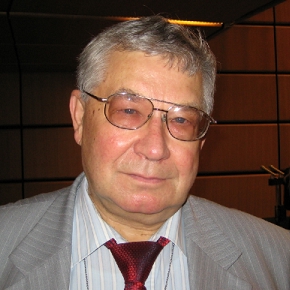 |
||
|
Peace Symposium in Japan Discusses Steps Toward Nuclear - Free World RIA Novosti, PUBLISHED 05.08.2014 Japanese newspaper Asahi Shimbun sponsored a peace symposium “The Road to Nuclear Weapons Abolition: To Overcome ‘Nuclear Umbrella,’” on August 2 in Nagasaki and Hiroshima which saw speakers and an audience of 400 in a discussion on the steps to reduce and eventually eliminate nuclear arsenals around the world. “I strongly believe that those of us, the US allies, including my own country, who are presently sheltering or believing that we are sheltering under the US nuclear umbrella, should be prepared to make it very clear our acceptance of a much reduced role of nuclear weapons in our protection,” Gareth Evans, chancellor of Australian National University and Australian foreign minister between 1988 and 1996, said in his keynote speech. Japan’s most recent brush with nuclear disaster, the largest nuclear accident since Chernobyl, was on March 11, 2011, involving the Fukushima Daiichi nuclear power plant failure that saw a meltdown of three of the plant’s six nuclear reactors. The plant was hit by a tsunami triggered by the Tohoku earthquake, causing substantial amounts of radioactive material to be released the following day. Other news: Ex-TEPCO Executives to Face Criminal Charges Over Fukushima Disaster The decision of the 11-member public panel concerns Tsunehisa Katsumata, chairman of TEPCO at the time of the disaster, and two former vice presidents – Sakae Muto and Ichiro Takekuro. Russian, Chinese Companies Sign Memorandum to Build Floating Nuclear Plants The memorandum was signed by Dzhomart Aliev and CNNC New Energy President Tianlin Qian. Construction of Brand New US Nuclear Plants Hampered AP agency reports on a number of quality and cost problems that now cast doubts about if the nuclear energy would ever dominate other electricity sources. Last news:
|
Hero of the day 
The ISTC Responsible Science Program and Subprogram Culture of Nuclear Nonproliferation The dual-use nature of nuclear technology consisting in the potential for its application equally in peaceful and military sphere is the basic contradiction for the existing nuclear nonproliferation regime and comprehensive development of the nuclear power and nuclear fuel cycle. INTERVIEW
Jerry Hopwood OPINION
Joint Plan of Action |
Licence Р В Р’ВВВР В Р’В» №ФС77-30792. ATOMINFO™ trademark.

